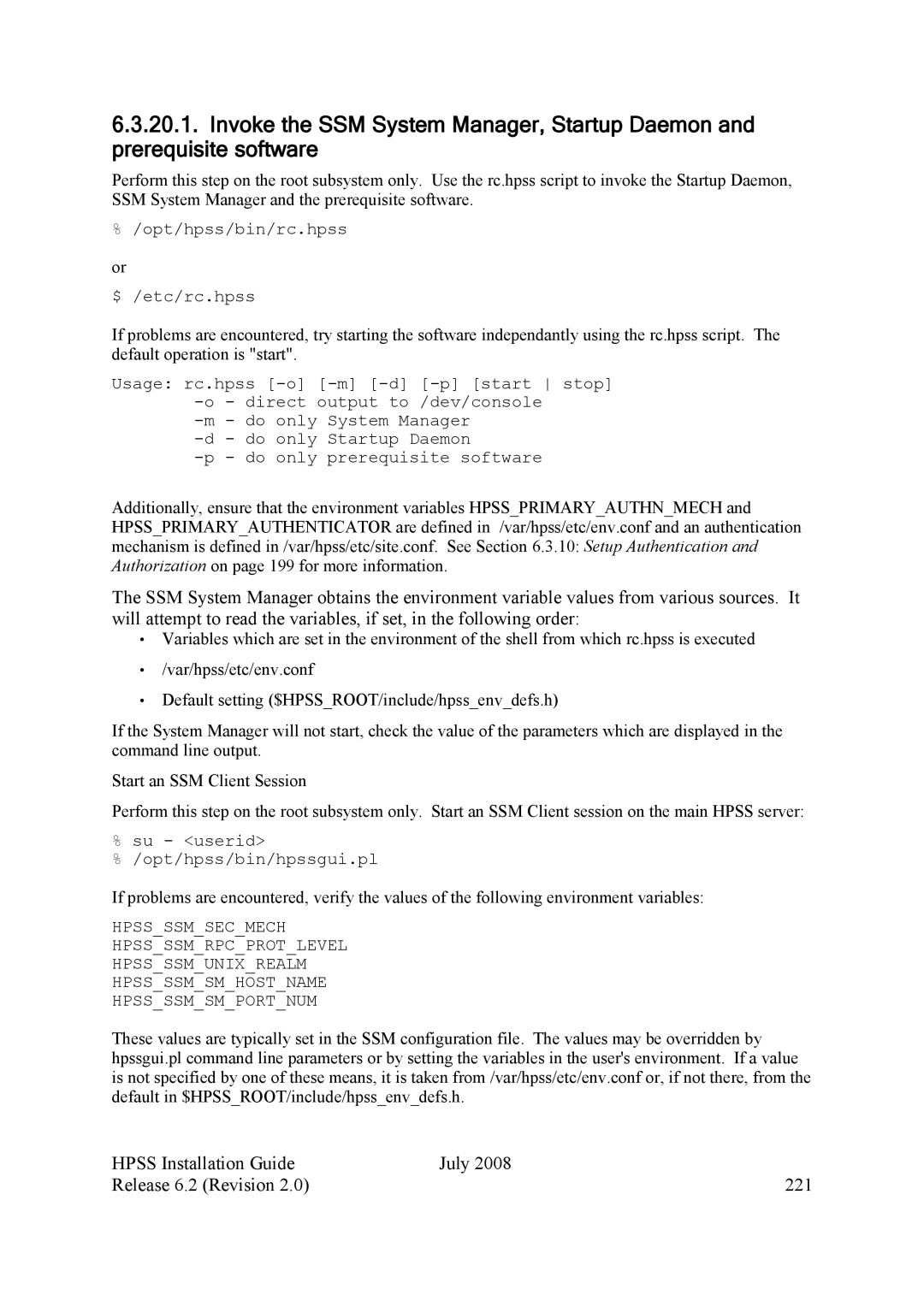6.3.20.1.Invoke the SSM System Manager, Startup Daemon and prerequisite software
Perform this step on the root subsystem only. Use the rc.hpss script to invoke the Startup Daemon, SSM System Manager and the prerequisite software.
% /opt/hpss/bin/rc.hpss
or
$ /etc/rc.hpss
If problems are encountered, try starting the software independantly using the rc.hpss script. The default operation is "start".
Usage: rc.hpss
Additionally, ensure that the environment variables HPSS_PRIMARY_AUTHN_MECH and
HPSS_PRIMARY_AUTHENTICATOR are defined in /var/hpss/etc/env.conf and an authentication mechanism is defined in /var/hpss/etc/site.conf. See Section 6.3.10: Setup Authentication and Authorization on page 199 for more information.
The SSM System Manager obtains the environment variable values from various sources. It will attempt to read the variables, if set, in the following order:
•Variables which are set in the environment of the shell from which rc.hpss is executed
•/var/hpss/etc/env.conf
•Default setting ($HPSS_ROOT/include/hpss_env_defs.h)
If the System Manager will not start, check the value of the parameters which are displayed in the command line output.
Start an SSM Client Session
Perform this step on the root subsystem only. Start an SSM Client session on the main HPSS server:
%su - <userid>
%/opt/hpss/bin/hpssgui.pl
If problems are encountered, verify the values of the following environment variables:
HPSS_SSM_SEC_MECH
HPSS_SSM_RPC_PROT_LEVEL
HPSS_SSM_UNIX_REALM
HPSS_SSM_SM_HOST_NAME
HPSS_SSM_SM_PORT_NUM
These values are typically set in the SSM configuration file. The values may be overridden by hpssgui.pl command line parameters or by setting the variables in the user's environment. If a value is not specified by one of these means, it is taken from /var/hpss/etc/env.conf or, if not there, from the default in $HPSS_ROOT/include/hpss_env_defs.h.
HPSS Installation Guide | July 2008 |
Release 6.2 (Revision 2.0) | 221 |
